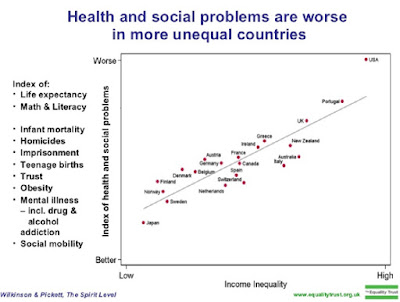Ben Palmquist, Campaign Manager for the National Economic and Social Rights Initiative (NESRI), gave us his take on why health care should be a human right, and the role of social workers.
Why do we need a human rights approach to health care?
Because our health depends on many things outside of the health care system, including decent housing, good food and water, a clean environment, work with dignity, transportation, education, and social insurance, our government has an obligation not only to provide health care as a public good, but also to ensure that we have universal and equitable access to all of these other fundamental needs. In terms of the policy vision, a human-rights-based health care system needs to provide all needed health care as a public good without any restrictions (such as limitations based on immigration status, place of residence, employment status, gender, ability to pay fees, etc.).
The health care system must be financed publicly through progressive taxation, so that everyone pays into the system according to their ability to pay, and everybody can access, without restriction, the health care they need. Health care must be defined much more broadly than it is today to include things like dental care, mental health care, reproductive care, and long-term care that are so often left out.
What's the role of social workers in advancing the movement and in a human rights based health care system?
Social workers would play an absolutely critical role in supporting us all as individuals and as communities, and in helping us all access the things we need to live healthy lives and to achieve our full capabilities. They would work together with doctors, dentists, nurses, therapists, and other professionals to support as whole people.
I believe that all of us, as part of humanity, have an obligation to help others and to try to make the world a better place, and social workers are all people who have chosen a professional path to do just that. Given their commitment to others, their adherence to a code of ethics that includes social justice, and their experience working with people who are struggling in a very real way through the impacts of systemic injustices in health care, education, housing, food, social supports, policing, law, work, the economy, and other spaces, it seems to me that social workers are in a position to playing a leading role in Healthcare Is a Human Right and other movements.
We're supporting folks who are organizing in New York. I have yet to see a perfect health care bill anywhere, but in short, my sense is that the New York bill is a very strong one that would create universal, equitable public financing for health care, would include all residents of the state regardless of immigration status or other factors, and would set up a governing board to de-politicize management of the health care system and make it more transparent, participatory, and accountable to the people of New York.
As social workers committed to health care as a human right, what should we be asking ourselves as a profession?
- What unique perspective and understanding do social workers have of how people experience inequitable access, inequitable outcomes, and other injustices in the health care system and in the gaps between the health care system and other systems?
- How can social workers communicate the human impacts of injustices, illuminate their root causes, and help articulate a vision for a health care system and a society in which all people's needs are met?
- How can social workers support people in understanding how their personal struggles are connected to others' struggles, and support people in becoming leaders in movements for justice, dignity and human rights?
- How can social workers develop their own commitment to and leadership in these movements?
About NESRI
In partnership with communities, NESRI works to build a broad movement for economic & social rights, including health, housing, education and work with dignity.
Based on the principle that fundamental human needs create human rights obligations on the part of government and the private sector, NESRI advocates for public policies that guarantee the universal and equitable fulfillment of these rights in the United States.
Read more at: www.nesri.org



